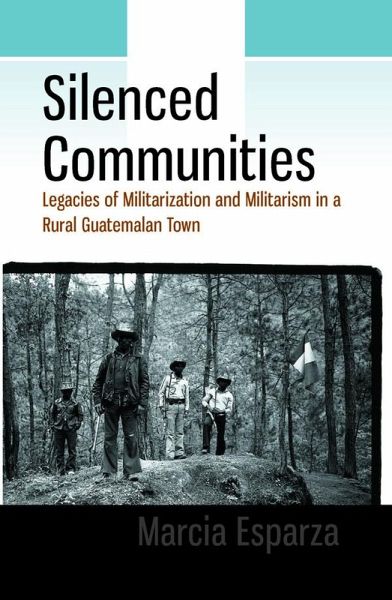
Silenced Communities (eBook, ePUB)
Legacies of Militarization and Militarism in a Rural Guatemalan Town
Versandkostenfrei!
Sofort per Download lieferbar
18,95 €
inkl. MwSt.
Weitere Ausgaben:

PAYBACK Punkte
9 °P sammeln!
Although the Guatemalan Civil War ended more than two decades ago, its bloody legacy continues to resonate even today. In Silenced Communities, author Marcia Esparza offers an ethnographic account of the failed demilitarization of the rural militia in the town of Santo Tomás Chichicastenango following the conflict. Combining insights from postcolonialism, subaltern studies, and theories of internal colonialism, Esparza explores the remarkable resilience of ideologies and practices engendered in the context of the Cold War, demonstrating how the lingering effects of grassroots militarization ...
Although the Guatemalan Civil War ended more than two decades ago, its bloody legacy continues to resonate even today. In Silenced Communities, author Marcia Esparza offers an ethnographic account of the failed demilitarization of the rural militia in the town of Santo Tomás Chichicastenango following the conflict. Combining insights from postcolonialism, subaltern studies, and theories of internal colonialism, Esparza explores the remarkable resilience of ideologies and practices engendered in the context of the Cold War, demonstrating how the lingering effects of grassroots militarization affect indigenous communities that continue to struggle with inequality and marginalization.
Dieser Download kann aus rechtlichen Gründen nur mit Rechnungsadresse in A, D ausgeliefert werden.













